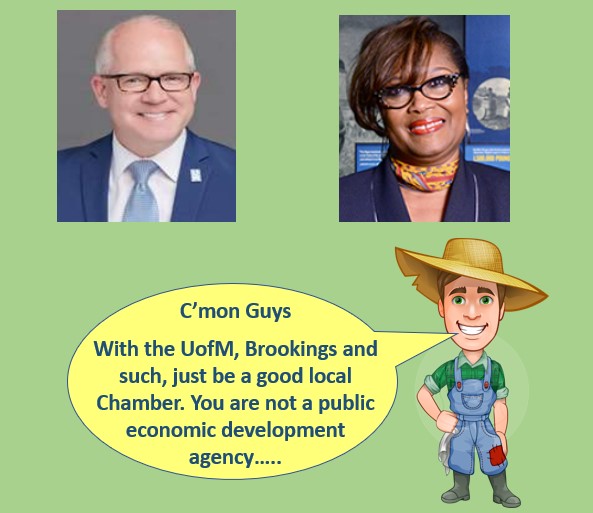The Greater Memphis Chamber of Commerce (GMC) should just focus on being a good Chamber, which they have not done. Evidence of the Chamber’s historic failure, can be found in deficient small business establishments to power the local economy. Shelby County has 23 business establishments per 1K population, compared to an average of 33 for its newly established 10 member peer group (BLS).
Without public checks and balances, the GMC policy stack has historically favored corporations and real estate developers. For this reason, small business, the primary driver of regional economic growth, throughout the United States, have been been thwarted in Memphis. This thwarting has predictably led to deficient economic development outcomes, as defined by total wage growth.
Meanwhile, with the launch of yet another GMC initiative in the Center for Economic Competitiveness the GMC appears to be attempting to be something that it’s not, a public economic development agency. Chambers generally perform the function of business policy and development advocacy, while focusing on marketing data in support of local business investment. This business advocacy is needed in the discourse but should not be confused with or stifle the discussion on economic development.
Historically, the GMC has aligned with EDGE, Brookings, Memphis Tomorrow and now the University of Memphis in publicly funded and so called “economic development” efforts. Such efforts have resulted in excessive corporate tax incentives, bogus economic projections, fabricated economic project summaries the defunding of needed inner city economic development efforts and predictably, overall deficient economic development outcomes.
For example, the last 2014 Brookings FOCUS Economic Development plan involved the above parties, yet the publicly funded plan was never measured. And after 2 years, preceded by 4 years from other local entities, the GMC Upskill 901 initiative has failed to produce a connected workforce development plan.
Now, 7 years later, the GMC and Washington DC based Brookings want to measure economic development outcomes for public consumption. Again, the GMC is not a public economic development agency and publishing connected workforce/economic development plans is just not core to the work of chambers of commerce.
Public County officials should secure their own publicly funded economic development measurement resources, while engaging the GMC and its data on matters of what Chambers are tasked to do, business policy advocacy. This breeds, what is arguably most lacking in the local discourse to support economic growth, thought diversity and vitality.
Since small business is the chief driver of economic growth, the GMC should focus mostly on helping small business thrive, not stifling them. In this way and from the recent past, the GMC would have done the following:
- Leveraged local expertise and small business to deliver on connected workforce development efforts
- Spoke out against regulatory authorities bullying AirBnB owner Kareema McCloud
- Spoke out against INNOVA investing significant amounts of state public funds in startups outside of Shelby County
- Spoke out against the Memphis City Council and regulatory authorities bullying new local full taxpaying business in Petland.
All of this to say, there is plenty of work to go around. To best insure regional economic progress, the GMC should, as a community stakeholder, focus on business policy advocacy, while leaving public economic development to others.

